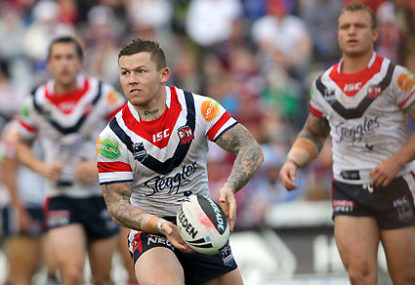Stevo@Lennox
new author
Roar Rookie

If I read one more story about how a team is on the right track due to a booze ban I’ll turn to drink. The booze ban is a hangover from amateur days. Surely professional sportspeople don’t need them – they are professional.
When implementing booze bans, a coach is merely playing amateur psychologist and all it does is tie teams and clubs in knots as they try to enforce yet another rule and then deal with any breach. Why bother?
Some coaches think it will bring teams together, teach players discipline, unite the team to a common cause over hardship. What rubbish. If a player is professional, and an adult, they should be entrusted to make the right decision. Of course there are athletes who make the wrong decision, and that can be under the influence of alcohol. If their crime is serious, and let’s remember many so-called ‘alcohol related offences’ are trivial, then let it be dealt with by the courts and subsequently by the clubs.
Booze bans, contrary to popular opinion, will not make a team play better. Furthermore, it can add to the pressure a professional athlete is under. Players do need to unwind from their job, like anyone else, and feel normal. Maybe they would like to have a beer or wine with family or friends over dinner. Is this such a crime? It could be argued that enforcing long-term booze bans could take away from performance by not letting players unwind.
Professional athletes these days need to follow more rules and regulations than those in the armed forces. They are told what to wear to training, what to wear to the game, after the game, during the game, during sponsor functions, what gym they are attending, what exercise to do, what charity to attend, what to say to the media… This is just from the club – don’t even mention what each football league demands of a player. If they stuff up, they’re generally fined, usually a ludicrous amount.
There are many different types of people who make up a football team, from the young superstar fullback to the grizzled old prop. Different people deal with alcohol in different ways. The biggest influence on any footballers are the coaches and senior players. The coach should make players feel like adults, responsible for their performance and to the team. The selection of players in team sports based on their character and attitude can and possibly should, outweigh ability.
A great example of this is the two Melbourne rugby teams of 2013. The Melbourne Storm of 2013 boasted Billy Slater, Cameron Smith and Cooper Cronk, while the Melbourne Rebels had Kurtley Beale and James O’Connor on the books. All are good players. One team had mature, focused, professional players where energy was focused on training and winning, while the other team used up valuable energy solving off-field issues.
In other words, if coaches and management selected the right type of individual to join a football club in the first place, and if the seniors players at the club are setting the right example, then booze bans are a hangover that any professional football club or code doesn’t need.
If clubs impose booze bans it could be argued it is because of a failure of management, coaching and senior players to set the right culture.